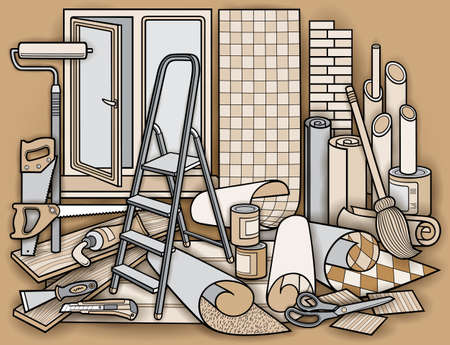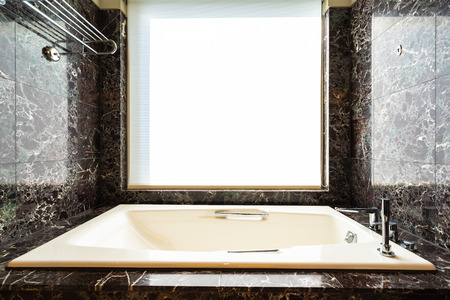Overview of Bathroom Renovation Costs in the U.S.
Bathroom renovation costs in the United States can vary widely depending on several factors, including your location, the size of your bathroom, and the quality of materials you choose. Generally, homeowners spend anywhere from $6,000 to $25,000 or more on a full bathroom remodel. Understanding these costs can help you plan your project and set realistic expectations.
Average Bathroom Renovation Costs by Region
| Region | Low-End Remodel | Mid-Range Remodel | High-End Remodel |
|---|---|---|---|
| Northeast (e.g., New York, Boston) | $8,000 – $12,000 | $16,000 – $25,000 | $30,000+ |
| West Coast (e.g., California, Seattle) | $9,000 – $14,000 | $18,000 – $28,000 | $35,000+ |
| Midwest (e.g., Chicago, Minneapolis) | $6,000 – $10,000 | $12,000 – $22,000 | $28,000+ |
| South (e.g., Texas, Florida) | $7,000 – $11,000 | $14,000 – $20,000 | $26,000+ |
Key Factors Affecting Bathroom Renovation Prices
- Location: Labor and material costs differ between cities and states. Major metropolitan areas usually have higher prices than rural regions.
- Bathroom Size: Larger bathrooms require more materials and labor time.
- Material Quality: Luxury finishes and high-end fixtures can significantly increase overall expenses.
- Scope of Work: A simple cosmetic update will cost much less than a full-scale renovation involving plumbing and electrical changes.
- Contractor Experience: Hiring a reputable contractor may cost more upfront but often delivers better results and long-term value.
What’s Included in These Costs?
The price estimates above typically cover demolition, new fixtures (like toilets and vanities), tiling, lighting updates, painting or wallpapering, and installation labor. They usually do not include major structural changes or luxury additions such as heated floors or custom cabinetry.
2. Major Cost Components Explained
Breakdown of Primary Cost Drivers in U.S. Bathroom Renovations
When it comes to remodeling a bathroom in the United States, several major factors can influence your total project cost. Understanding these components will help you budget wisely and make informed decisions during your renovation process.
Labor Costs
Labor is often the largest expense in a U.S. bathroom remodel, typically accounting for 40% to 65% of the total budget. Labor costs include hiring professionals such as general contractors, plumbers, electricians, and tile installers. Prices can vary widely based on location, project complexity, and contractor experience.
Average Labor Cost Breakdown
| Professional | Typical Cost Range (per hour) |
|---|---|
| General Contractor | $50 – $150 |
| Plumber | $45 – $200 |
| Electrician | $50 – $120 |
| Tile Installer | $35 – $100 |
Materials and Fixtures
The next big chunk of your budget goes toward materials and fixtures, including vanities, sinks, toilets, bathtubs or showers, flooring, tiles, lighting, mirrors, and cabinetry. The choice between standard and luxury materials will greatly affect your overall costs.
Common Material Costs
| Item | Budget Range (each) | Luxury Range (each) |
|---|---|---|
| Vanity & Sink Combo | $200 – $800 | $1,000 – $3,000+ |
| Toilet | $100 – $500 | $700 – $2,000+ |
| Bathtub/Shower Unit | $300 – $900 | $1,500 – $5,000+ |
| Ceramic Tile (per sq. ft.) | $1 – $5 | $10 – $25+ |
| Lighting Fixture | $50 – $300 | $500 – $1,500+ |
Plumbing and Electrical Upgrades
If your renovation involves moving plumbing lines or updating electrical wiring to meet current codes, expect additional expenses. Plumbing upgrades can be costly due to labor intensity and the need for specialized skills. Electrical work may include new outlets (especially GFCI), lighting changes, or circuit updates for added safety.
Permits and Inspections (U.S.-Specific)
Most cities and counties in the U.S. require permits for bathroom remodels involving structural changes or major plumbing/electrical work. Permit costs depend on your local government but generally range from $200 to $1,000. Inspections are usually included in the permitting process to ensure work meets building codes.
Summary Table: Major Cost Drivers in U.S. Bathroom Renovations
| Cost Component | Description/What’s Included | Estimated Share of Total Cost (%) | Typical Price Range |
|---|---|---|---|
| Labor | Contractors, plumbers, electricians, tile setters | 40-65% | $2,000 – $8,000+ |
| Materials & Fixtures | Sinks, toilets, tubs/showers, tiles, lighting | 30-50% | $1,500 – $7,000+ |
| Plumbing/Electrical Upgrades | Pipes/wiring relocation or replacement | N/A (included above if necessary) | $500 – $3,000+ |
| Permits & Inspections | Muncipal approval and code compliance checks | N/A | $200 – $1,000+ |
This breakdown gives you a clear picture of where your money goes during a typical U.S. bathroom renovation. Knowing these major cost drivers helps you plan ahead and prioritize whats most important for your project.

3. Budgeting: Basic vs. Mid-Range vs. High-End Renovations
When planning a bathroom renovation in the U.S., understanding how your budget affects the overall project is essential. Bathroom remodels can vary greatly depending on the level of finishes, fixtures, and labor involved. Here’s what homeowners can expect at each price point:
Basic Bathroom Renovation
This is the most affordable option, ideal for those who want to freshen up their bathroom without making major changes to layout or plumbing.
- Average Cost: $5,000 – $15,000
- Typical Features: Stock vanities and cabinets, standard ceramic or vinyl flooring, basic bathtub or shower insert, standard fixtures (chrome or brushed nickel), simple lighting, and repainting walls.
- Scope of Work: Cosmetic updates only, no moving of plumbing or electrical lines.
Common Materials & Fixtures
| Feature | Basic Option |
|---|---|
| Flooring | Vinyl sheet, ceramic tile |
| Vanity | Stock laminate or prefabricated wood |
| Bathtub/Shower | Acrylic tub/shower combo |
| Toilet | Standard white two-piece toilet |
| Faucets/Fixtures | Chrome finish, standard models |
Mid-Range Bathroom Renovation
If you’re looking for a bit more style and durability, a mid-range remodel offers upgraded materials and additional features.
- Average Cost: $15,000 – $35,000
- Typical Features: Semi-custom cabinetry, porcelain or natural stone tile flooring, glass shower doors, upgraded lighting fixtures, quartz or granite countertops, under-mount sinks.
- Scope of Work: Some reconfiguration possible; moderate upgrades to plumbing and electrical may be included.
Common Materials & Fixtures
| Feature | Mid-Range Option |
|---|---|
| Flooring | Ceramic or porcelain tile |
| Vanity | Semi-custom wood with stone countertop |
| Bathtub/Shower | Tiled shower with glass door or alcove soaking tub |
| Toilet | Sleeker design with water-saving features |
| Faucets/Fixtures | Brushed nickel or matte black finish, designer brands available at Home Depot or Lowe’s |
High-End Bathroom Renovation
This option is for those who want a true luxury retreat with premium finishes and custom features throughout the space.
- Average Cost: $35,000+
- Typical Features: Custom cabinetry and millwork, heated flooring, frameless glass showers with body jets or steam systems, freestanding tubs, high-end tile such as marble or mosaic patterns, smart technology (touchless faucets, integrated speakers), premium lighting design.
- Scope of Work: Full reconfiguration possible; luxury materials; extensive plumbing and electrical upgrades; custom layout and storage solutions.
Common Materials & Fixtures
| Feature | High-End Option |
|---|---|
| Flooring | Naturally heated marble or imported stone tile with radiant heat system |
| Vanity | Bespoke furniture-style cabinets with quartzite countertop and integrated sinks |
| Bathtub/Shower | Spa-style walk-in shower with multiple heads/steam; freestanding soaking tub from designer brands like Kohler or Toto |
| Toilet | Sleek one-piece toilet with bidet functions and heated seat (smart toilet) |
| Faucets/Fixtures | Luxe finishes like polished nickel or matte gold; touchless controls; custom hardware from high-end retailers like Ferguson Bath & Kitchen Gallery |
The right budget level depends on your goals for the space, your home’s value, and your personal preferences. Whether you go basic or all-out luxury, knowing what to expect at each price point helps you make informed choices as you plan your bathroom remodel.
4. How Location Impacts Your Bathroom Remodel Budget
When it comes to bathroom renovations in the United States, where you live matters a lot. The cost of remodeling your bathroom can vary widely depending on your state, city, and even your specific neighborhood. Let’s break down how location plays a big role in shaping your budget.
Why Location Makes a Difference
Labor rates and material prices are not the same everywhere. In larger cities or regions with a higher cost of living, expect to pay more for both skilled workers and supplies. On the other hand, smaller towns or rural areas often have lower prices, but sometimes fewer options for contractors and materials.
Average Bathroom Remodel Costs by Region
| Region | Average Cost Range | Typical Labor Rate |
|---|---|---|
| Northeast (e.g., New York, Boston) | $15,000 – $30,000+ | $80 – $150/hour |
| West Coast (e.g., California, Seattle) | $14,000 – $28,000 | $75 – $140/hour |
| Midwest (e.g., Chicago, Minneapolis) | $10,000 – $22,000 | $60 – $110/hour |
| South (e.g., Atlanta, Dallas) | $8,000 – $18,000 | $50 – $100/hour |
| Rural Areas & Small Towns | $5,000 – $12,000 | $40 – $80/hour |
Note:
These numbers are averages and can fluctuate based on your city and current market trends.
The Neighborhood Factor
Your immediate neighborhood can also influence costs. Upscale communities may require higher-end finishes and licensed professionals who charge premium rates. In contrast, standard neighborhoods might offer more budget-friendly options without sacrificing quality.
Material Prices Can Vary Too
Not only labor but also material costs can change based on location. Shipping fees, local taxes, and access to certain products all affect your final bill. For example, tiles or fixtures imported from overseas may be pricier in remote areas compared to port cities.
Quick Tips for Managing Costs by Location:
- Get multiple quotes from local contractors to compare rates.
- Ask about locally sourced materials to save on shipping costs.
- If you live in a high-cost area, consider doing some prep work yourself to cut labor hours.
- Check if local rebates or incentives are available for water-saving fixtures or energy-efficient upgrades.
5. Cost-Saving Tips and Common Pitfalls to Avoid
Smart Ways to Save on Your Bathroom Renovation
Renovating your bathroom in the U.S. can get expensive, but there are several practical ways to keep your project on budget. Check out these tried-and-true tips:
1. Set a Realistic Budget (and Stick to It)
Before starting any work, decide how much you’re willing to spend. Factor in all costs—including labor, materials, permits, and a buffer for unexpected expenses. Staying disciplined with your budget helps prevent overspending.
2. Keep the Layout the Same
Moving plumbing or electrical fixtures is one of the quickest ways to drive up costs. If possible, keep your toilet, shower, and sink in their original locations to avoid pricey rerouting fees.
3. Choose Materials Wisely
| Budget-Friendly Choices | Splurge Alternatives |
|---|---|
| Ceramic tile | Natural stone tile |
| Laminate countertops | Quartz or granite countertops |
| Acrylic tubs/showers | Custom tile showers/tubs |
| Standard vanities from big box stores | Custom cabinetry |
You can still get a stylish result by mixing high and low options—for example, use affordable tiles on most surfaces but splurge on a statement piece like a decorative backsplash.
4. Do Some Work Yourself
If you’re handy, consider tackling demolition, painting, or installing hardware yourself. Labor makes up a significant portion of renovation costs, so DIY where you feel comfortable to save money.
Selecting the Right Contractor
- Get Multiple Quotes: Don’t settle for the first bid. Compare at least three contractors to make sure you’re getting a fair price.
- Check Credentials: Look for licensed and insured professionals with strong references and positive online reviews (sites like Angi or Yelp are great resources).
- Avoid Large Upfront Payments: A reputable contractor won’t ask for more than 10-20% upfront. Pay as work progresses and milestones are met.
- Have a Detailed Contract: Make sure everything—from scope of work to payment schedule—is clearly written down before anyone starts swinging a hammer.
Common Renovation Mistakes That Can Inflate Costs
- Poor Planning: Changes mid-project can be expensive. Finalize your design and material choices before work begins.
- Skipping Permits: Unpermitted work might save money now but could lead to fines or problems when selling your home later.
- Ineffective Communication: Misunderstandings with your contractor can lead to costly errors or rework. Stay in regular contact and ask questions if anything isn’t clear.
- Underestimating Hidden Issues: Old bathrooms often hide surprises like water damage or outdated wiring. Plan for at least 10-15% extra in your budget for unexpected repairs.
Your Renovation Cheat Sheet
| Do This | Avoid This |
|---|---|
| Create a detailed plan and budget before starting | Making design changes after work begins |
| Select cost-effective materials that look good and last | Choosing trendy or luxury items without considering long-term value |
| Diligently vet contractors and check references | Picking the cheapest contractor without proper background checks |
| Tackle simple DIY tasks if you’re able | Taking on complex projects outside your skill level (which may require expensive fixes later) |
| Add a contingency fund for surprises | Assuming everything will go perfectly according to plan |
This practical advice should help American homeowners manage bathroom renovation costs while avoiding common pitfalls that can turn an exciting project into an expensive headache.

